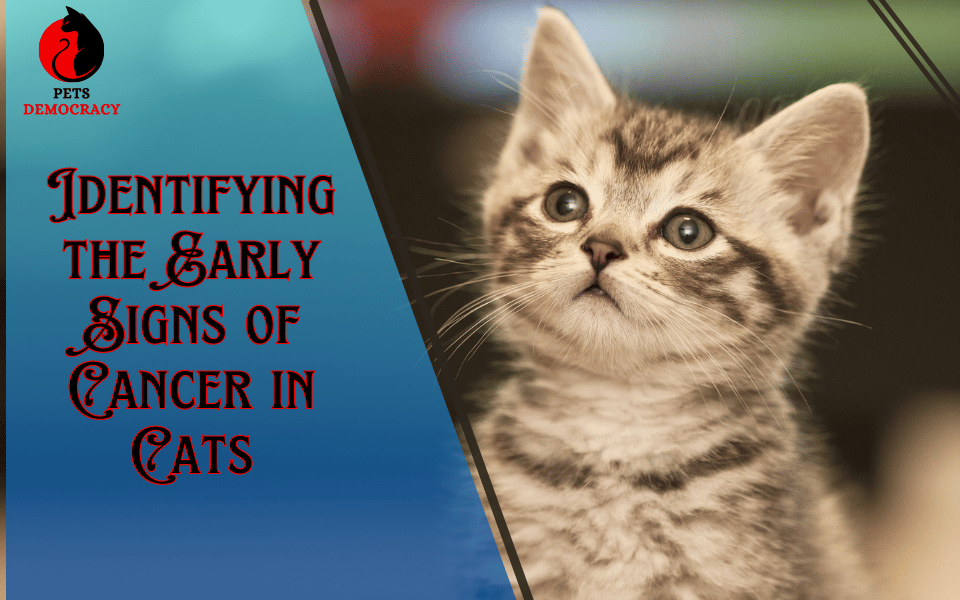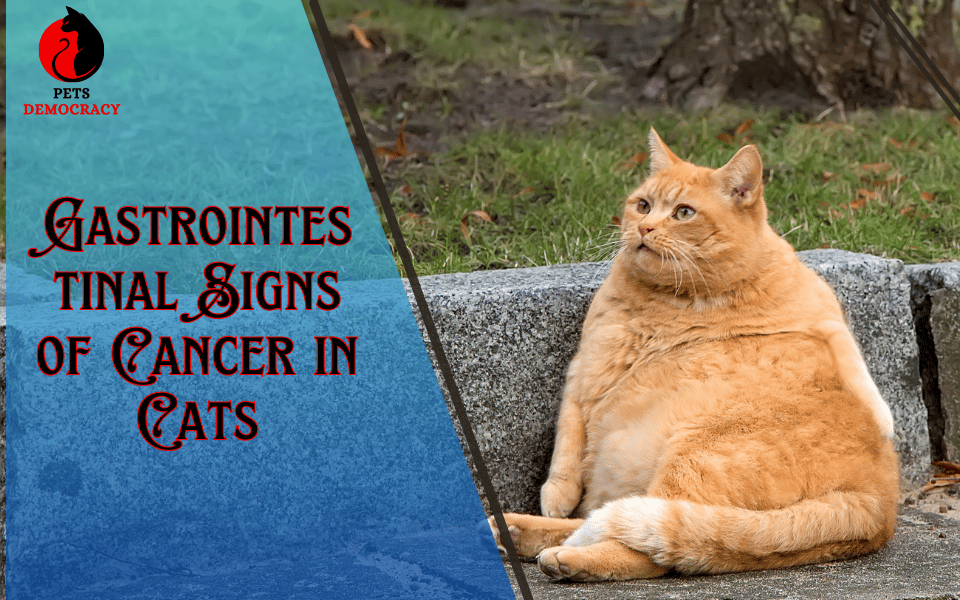
This blog will guide you through recognizing the signs of cancer in cats, understanding the treatment options, and focusing on specific types like cancer in cats’ intestines.
Cats, like humans, can develop cancer, which is a leading cause of death in older felines. Detecting cancer early can significantly affect the prognosis and treatment success.
What is Cancer in Cats?
Cancer in cats occurs when cells within the body grow uncontrollably, leading to the formation of tumors or the spread of abnormal cells. These can affect any part of the body, including the skin, blood, organs, and intestines.
Common Types of Cancer in Cats
- Lymphoma: This affects the lymphatic system.
- Squamous Cell Carcinoma: Commonly found in the skin, mouth, and nose.
- Mammary Cancer: Predominantly in female cats.
Importance of Early Detection
Early detection of cancer in cats can significantly improve the effectiveness of treatment. Being aware of the signs of cancer in cats can help in seeking veterinary care promptly, increasing the chances of a positive outcome.
Identifying the Early Signs of Cancer in Cats

Physical Signs of Cancer in Cats
Unusual Lumps or Bumps
One of the primary signs of cancer in cats is the presence of unusual lumps or bumps. While not all lumps are cancerous, any new or changing masses should be examined by a veterinarian.
Weight Loss
Unexplained weight loss is a significant sign of cancer in cats. If your cat is losing weight despite having a healthy appetite, it could indicate an underlying issue.
Changes in Appetite
A noticeable decrease or increase in appetite can be a symptom of cancer in cats. This change can result from discomfort, nausea, or the tumor affecting the cat’s organs.
Behavioral Signs of Cancer in Cats
Lethargy
Increased lethargy or reluctance to engage in usual activities can be an early sign of cancer in cats. If your cat seems unusually tired or unwilling to move, it might be due to pain or weakness caused by cancer.
Difficulty Breathing
Labored or noisy breathing can indicate cancer in cats, particularly if the tumor is in the respiratory system. This symptom warrants immediate veterinary attention.
Gastrointestinal Signs of Cancer in Cats

Vomiting and Diarrhea
Persistent vomiting or diarrhea can be a sign of cancer in cats’ intestines. These symptoms can lead to dehydration and malnutrition if not addressed promptly.
Blood in Stool or Urine
Blood in your cat’s stool or urine is a concerning sign and could indicate cancer in the gastrointestinal or urinary tract. Immediate veterinary evaluation is crucial.
Diagnosing Cancer in Cats
Veterinary Examination
Physical Examination
A thorough physical examination by a veterinarian is the first step in diagnosing cancer in cats. The vet will check for lumps, bumps, and other abnormalities.
Diagnostic Tests
Several diagnostic tests can help confirm cancer in cats, including:
- Blood Tests: To check for abnormal cells or organ function.
- X-rays and Ultrasounds: To visualize tumors or abnormalities inside the body.
- Biopsy: Removing a tissue sample for analysis to determine if it’s cancerous.
Understanding the Prognosis
The prognosis for cats with cancer varies based on the type, location, and stage of the cancer. Early detection generally leads to a better prognosis. Your veterinarian will discuss the expected outcomes and possible treatment options.
Treatment Options for Cancer in Cats
Surgical Treatment
Tumor Removal
Surgery to remove the tumor is often the first line of treatment for cancer in cats, especially if the cancer is localized and hasn’t spread.
Chemotherapy
Medication
Drugs are used in chemotherapy to either kill or stop the growth of cancer cells. It can be used alone or in conjunction with surgery and is effective for certain types of cancer in cats.
Radiation Therapy
Targeted Treatment
Radiation therapy uses high-energy waves to target and destroy cancer cells. It is often used for cancers that are not easily accessible through surgery.
Prevention and Regular Check-Ups
Regular Veterinary Visits
Annual Exams
Regular veterinary check-ups are essential for early detection of cancer in cats. Annual exams can help catch potential issues before they become severe.
Monitoring Changes
Being vigilant about any changes in your cat’s health or behavior can aid in early detection. Report any unusual signs to your veterinarian immediately.
Preventive Measures
Diet and Exercise
A balanced diet and regular exercise can help maintain your cat’s overall health, potentially reducing the risk of cancer.
Avoiding Carcinogens
Minimize your cat’s exposure to known carcinogens, such as secondhand smoke and certain chemicals, to lower the risk of cancer.
FAQs About Signs of Cancer in Cats
What are the most common signs of cancer in cats?
The most common signs of cancer in cats include unusual lumps, weight loss, changes in appetite, lethargy, difficulty breathing, vomiting, diarrhea, and blood in stool or urine.
How can I tell if my cat has cancer in its intestines?
Signs of cancer in cats’ intestines include persistent vomiting, diarrhea, weight loss, and abdominal swelling. Diagnostic imaging like X-rays or ultrasounds is needed for confirmation.
What should I do if I notice signs of cancer in my cat?
If you notice any signs of cancer in your cat, schedule an appointment with your veterinarian immediately for a thorough examination and appropriate diagnostic tests.
Can cancer in cats be treated successfully?
Yes, many cat cancers can be treated successfully, especially if detected early. Treatment options include surgery, chemotherapy, radiation therapy, and palliative care.
How often should I take my cat for a veterinary check-up to detect cancer early?
It’s recommended to take your cat for a veterinary check-up at least once a year. Older cats or those with known health issues may benefit from more frequent visits.
Conclusion
Understanding the signs of cancer in cats and seeking early veterinary care can significantly impact your cat’s quality of life and treatment outcomes.
Regular check-ups, a healthy lifestyle, and prompt attention to any unusual symptoms are crucial in the fight against feline cancer.


